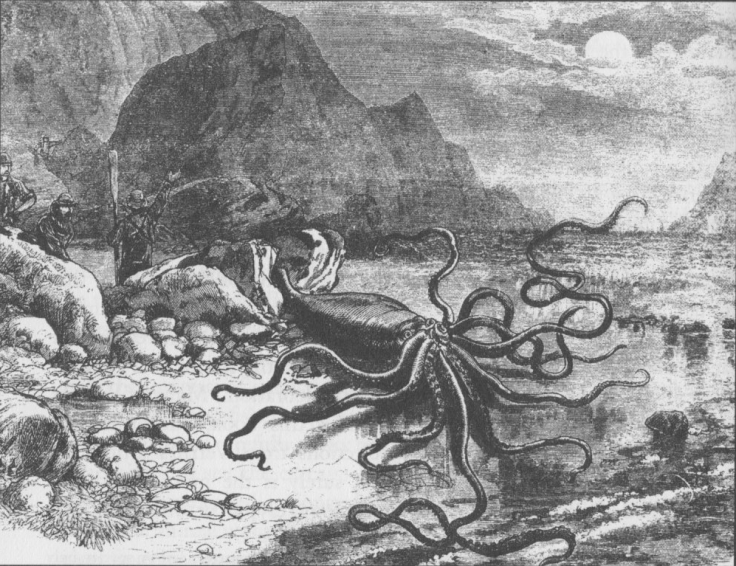Giant Squid, Stranded In South African Beach, To Be Part Of Museum

KEY POINTS
- A rare giant squid was found stranded at a beach in South Africa
- It will soon become a part of the Iziko Museums in South Africa
- Such giant squid strandings are considered rare in the country
Earlier in June, a giant squid washed ashore on a beach in South Africa. The stranded creature did not survive, but will soon be the latest addition to the Iziko Museums of South Africa's invertebrate collection.
On June 7, a giant squid was found stranded on the shores of Golden Mile Beach in Brittania Bay, about 150 kilometers northwest of Cape Town. The squid was still alive and spouting ink when it was discovered. Rescuers even tried to roll it back into the water, but, because of its weight, they decided to leave it on the shore where it eventually died.
According to marine biologist Dr. Wayne Florence of the Iziko Museums of South Africa, such giant squids can be found at depths of 300 to 1,000 meters in all oceans except at the poles. They typically grow very quickly, but live a relatively short life of just about five years.
As for the giant squid that stranded, according to Florence, its 4-meter length suggests it was likely less than two years old.
"It's rare. In South Africa, we have had less than a handful of strandings. Surprisingly, despite our museum being almost 200 years old, our earliest stranded giant squid specimen is from 1972," Florence told News24, also noting the largest squid to be stranded in South Africa was a 9.1-meter squid that was found in 1992.
The latest acquisition of @Iziko_Museums is this Giant Squid (Architeuthis) specimen that washed up in Brittania Bay along the South African West Coast. Thanks to the swift action of the public, @environmentza and the South African National Stranding Network. #GiantSquid pic.twitter.com/RzU0aFgPOL
— Wayne Florence (@Dr_Flo_MB) June 9, 2020
The giant squid was acquired by Iziko Museums, where it will be part of the facility’s marine invertebrate collection. However, due to the ongoing COVID-19 pandemic, the squid is currently stored at the facility’s -30 degrees Celsius walk-in freezer.
Once the lockdown measures are eased, the giant squid will be documented and preserved for long-term storage at the museum.
"Iziko has at least nineteen other Architeuthis specimens, making it the largest repository for giant squids on the continent, and comparable with other collections globally," Iziko Museums of South Africa said in a news release. "While the new specimen is just over four metres long, Iziko's largest giant squid specimen is around nine-point-three metres in length."
The find has significant scientific value. In the past, people thought there were several species of giant squids. Now, thanks to DNA analyzes of museum specimens, it is widely accepted they are all from the Architeuthis dux species.
"Newly acquired specimens for foundational taxonomic research have the potential for discovery of new species, underscoring the need for active museum collections," Iziko Museums said.
For many years, giant squids were depicted as monsters in the deep sea. Such discoveries could help people understand the creature better.
© Copyright IBTimes 2025. All rights reserved.






















